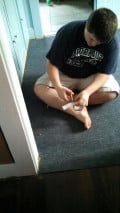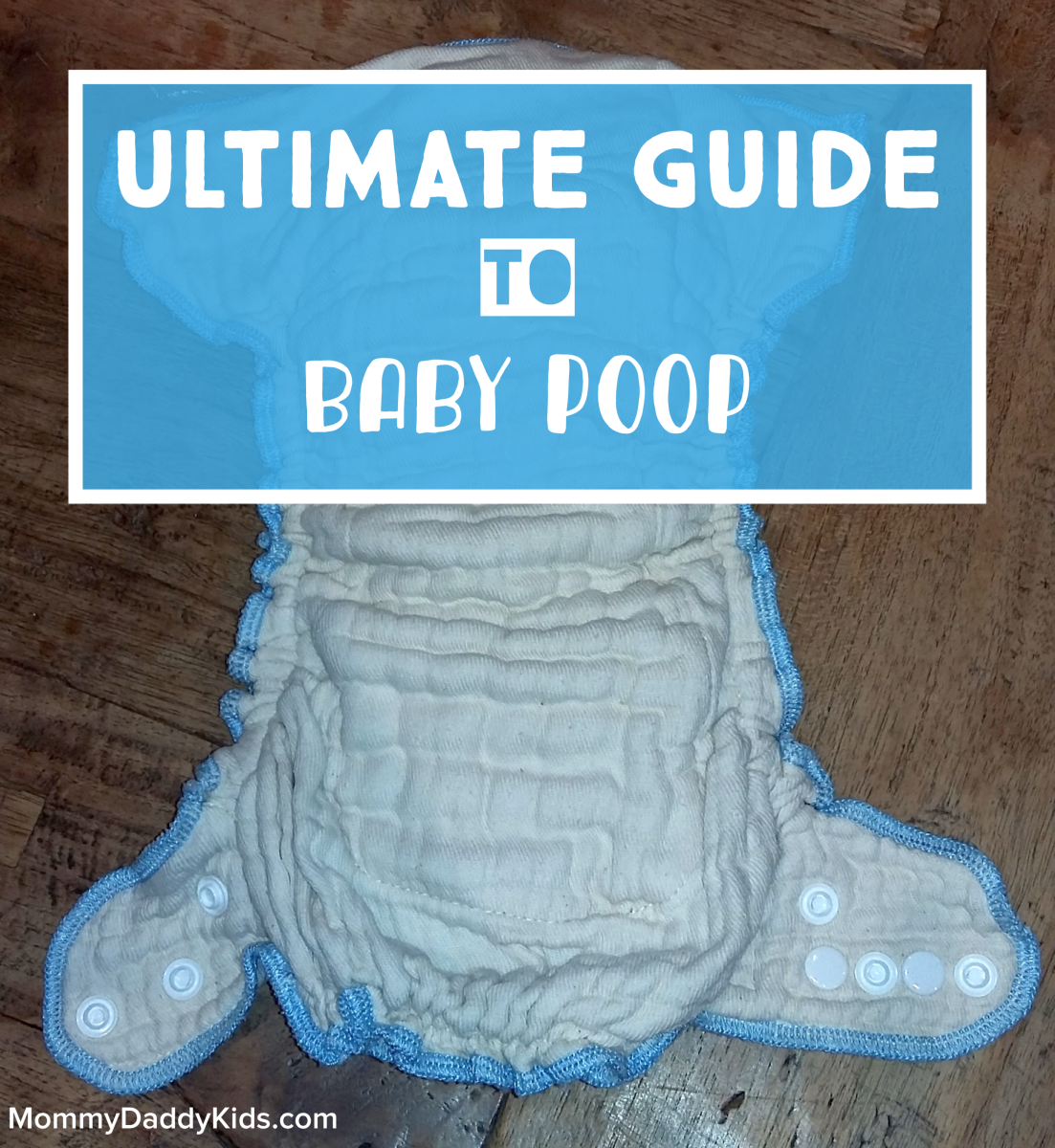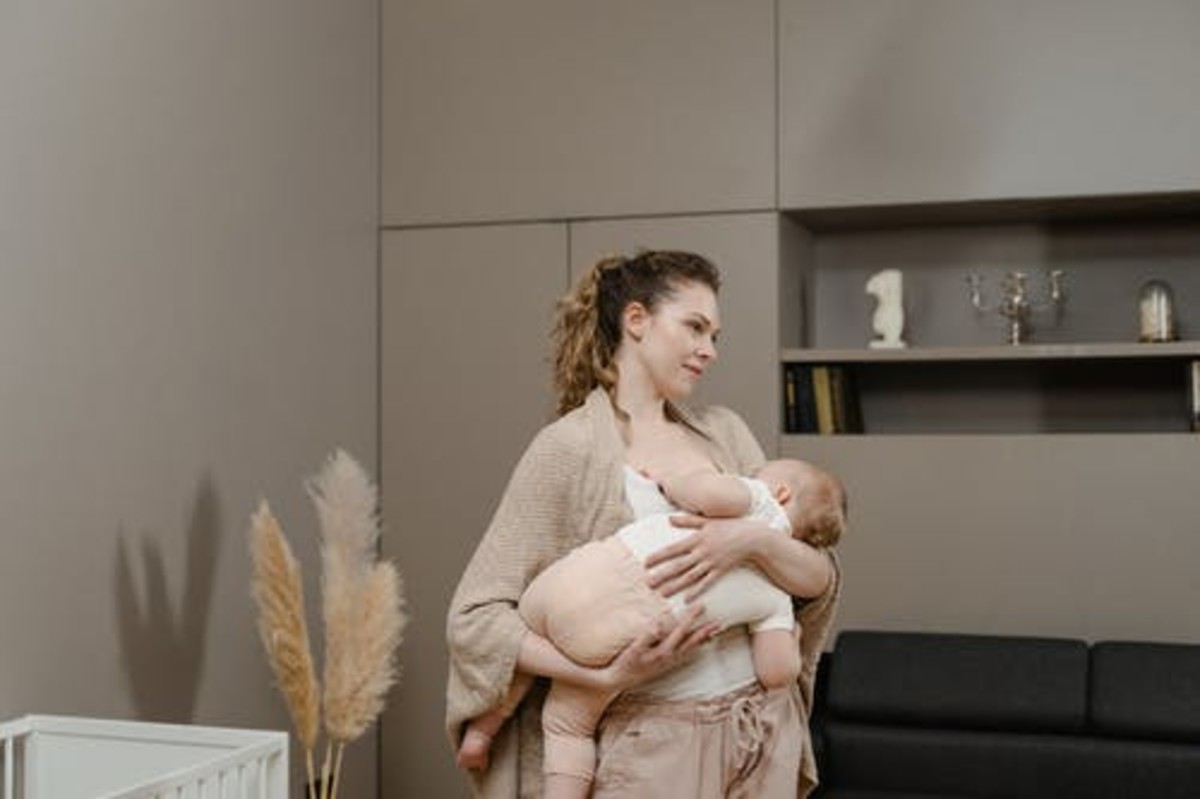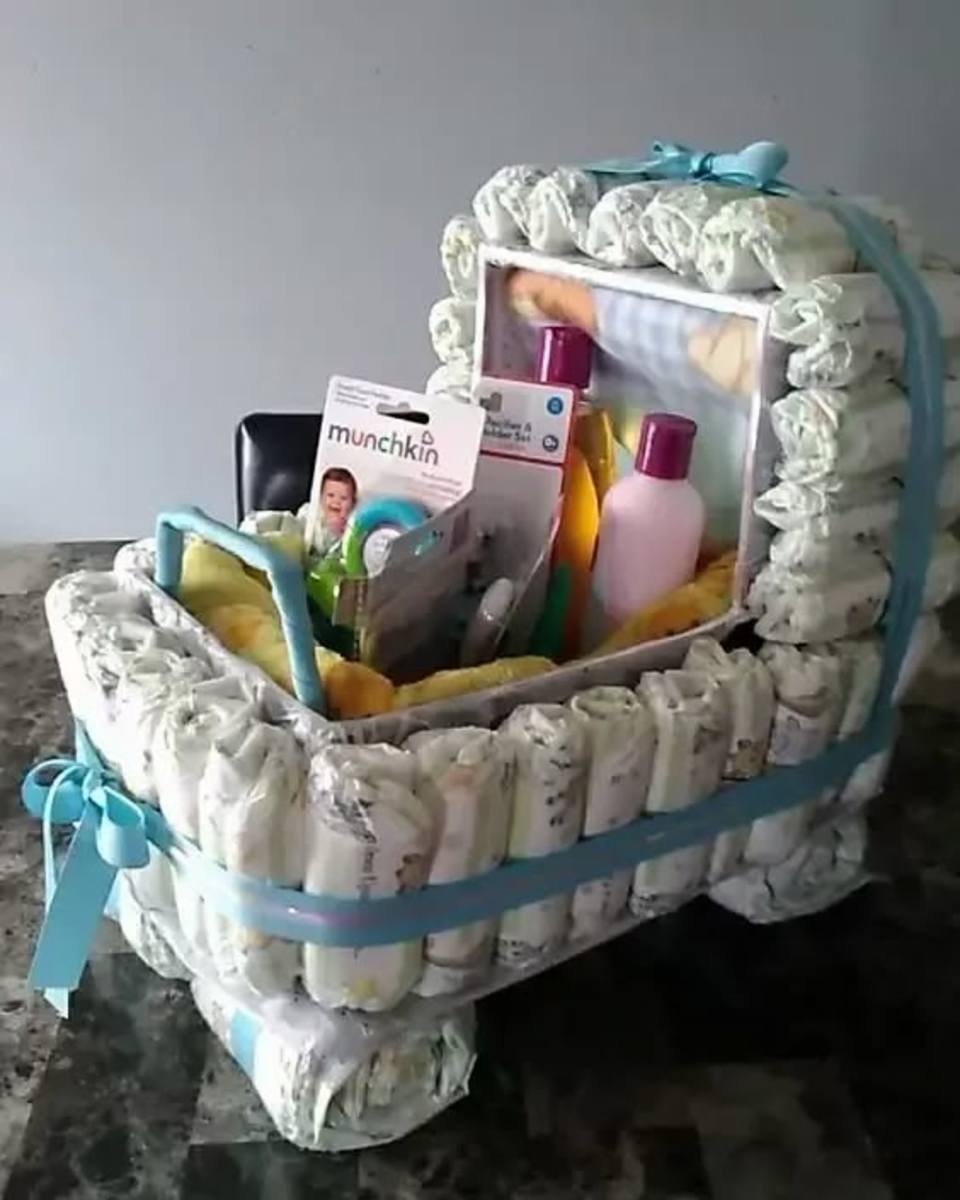The Newborn Months: Our Journey from Breast Milk to Formula and Back Again
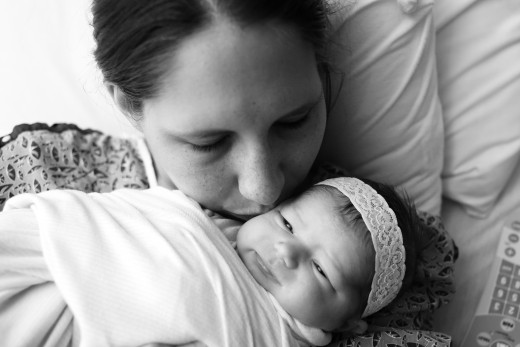
"Breast is best."
"Breast is best." Sounds great. As a new mom, this is what we're all told. Right from the start of my pregnancy, it was almost assumed that I would breastfeed - assumed by my doctors, my husband, our friends and to some extent, myself. I, for one, felt OK with this assumption at the time. I didn't know any better. I could not have predicted how difficult this journey of raising a newborn would be, and how confused, frustrated and utterly stressed I would become.
Our daughter was born in September 2014 and the entire process was as efficient and painless as one could hope. She has always been stubborn and headstrong, even while in utero, so I had to be induced when I was 42-weeks pregnant. Like (or unlike) many, I was not interested in a natural birth and opted for an epidural. The most difficult part of the whole experience was the two hour block of time when I was in labor and having contractions but was waiting on the anesthesiologist to start my epidural. After that, it was a breeze. I probably pushed four times, and there she was. Immediately she cried. 8 lbs. 10 oz. of tearful, chunky, full-head-of-hair baby girl. My husband and I hadn't been able to decide on a name for her, but yet we created this tiny, perfect human.
Shock. Joy. Relief. Anxiety. What do we do now?
"Feed her at least every two hours," I was told. Sounds easy enough. In the hospital, our nurses brought me our baby girl like clockwork, and I tried to breastfeed. I really tried. I had to use a nipple shield with every. single. feeding. "She's still hungry," they said. She lost weight. It wasn't until a day or two later that a nurse realized that our daughter was not getting enough milk from me; we started supplementing with Similac ready-to-feed formula. She showed my husband how to use his index finger, a syringe and a tiny tube to help feed her. We were told this technique should be used to prevent her from getting confused and refusing the breast. She gained enough weight that we were released from the hospital, though we had to visit her pediatrician the very next day for a re-check.
My breasts hurt - ached, even. I was so swollen and engorged, by the time we were able to return home, I had grown an additional cup size. I was stressed. Why wasn't this working? I had to go to Motherhood Maternity to get sized and fitted for new bras. New bras that I would wear for just a few days before I finally got some relief through letdown. Thank goodness. I remember thinking, "the worst is over." We stopped supplementing with formula. We felt good.
Silly me. I forget that all things are relative.
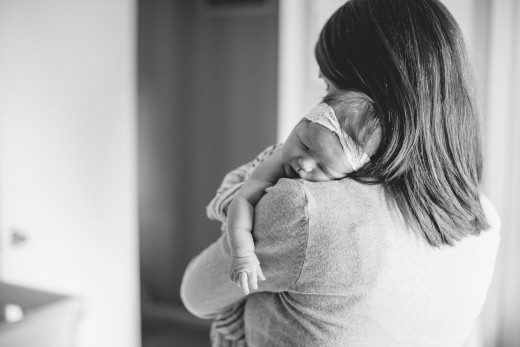
"It's just colic," or is it?
Almost right away, our daughter started having digestive issues. She burped all the time. She spit up - large amounts - with nearly every feeding. She couldn't sleep well because she had so much gas. We could hear her stomach making noises, trying to digest what she'd eaten. Despite knowing the dangers of allowing newborns to sleep on their stomach, this was the only position that provided relief and helped her to rest. She became reliant upon sleeping with a portable vibrating soother. This was a godsend. We burned through so many AAs that we caved and bought more than one set of rechargeable batteries. Thank you, Amazon.
We patted her back throughout the duration of each nap and at night, while she was falling asleep. We used a sound machine app (because apparently our sound machine wasn't good enough) and played the sound of a hair dryer with the volume cranked up. I'm sure it was too loud, but what do you do when your child can't find relief in any other way? We continued. The issues continued, and eventually, worsened.
She began to cough, gag, spit up and scream out during breast feedings. We took her to her pediatrician - actually, to several different pediatricians at the same practice. Every one of them offered different answers and explanations, but because she was gaining weight as expected (and we were the "typical" first-time parents, in their minds) it seemed that nobody was truly concerned.
"It's just colic," they said. We tried Colic Calm. No improvement. We tried other brands of gripe water. No improvement.
"She has digestive issues," they said. No kidding! We tried Gerber Soothe probiotic drops. We shelled out $25 for 0.17 oz. of this stuff on more than one occasion. No improvement. We tried simethicone gas drops. No improvement. We burped more often during each feeding. No improvement.
I cut out all things I loved to eat - no dairy, soy, eggs, nuts, onions, tomatoes or spicy foods. Nothing that could cause gas in adults, children or any other sized human. I became what I thought was vegan, and I HATED it. Maybe I'm just selfish, but I am not cut out for that lifestyle. No improvement.
It was not "just colic." One of the pediatricians we saw was convinced that our daughter had a serious acid reflux issue. She prescribed ranitidine (Zantac) that had to be filled at a compounding pharmacy. I had never heard of such a thing, but I got the prescription filled and we tried the medicine anyway. No improvement.
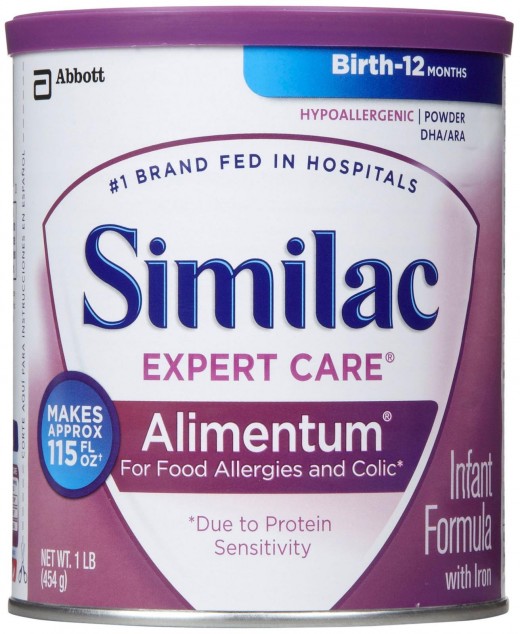
Liquid Gold.
Six weeks had passed in the time that we'd been "treating" our daughter's issues, and we were making yet another appointment to be seen by a pediatrician. I am quite positive the doctors in that office could predict our return visits to the hour, if not minute.
My husband had heard a story from a friend who told him that their child's stomach issues all but disappeared when the family switched from breastfeeding to formula. At our next appointment, we mentioned this to the pediatrician, and asked if she thought trying formula would be a reasonable option. I remember her saying to us, "No. I'd recommend that [our daughter] visits a pediatric gastroenterologist before thinking about switching to formula. Continue the ranitidine. Breast is best, you know."
That same day, we switched pediatricians. I was tired of feeling that because we were first-time parents, we were seen as overreactive. There was still something wrong with our daughter, and the "treatments" being offered at our first pediatrician's office were not working. I was tired of feeling that the doctors at that office were not willing to work with us and try alternatives. I was tired feeling like I was to blame for all of our daughter's issues. I was tired. Our daughter was tired.
Upon our first visit to our new pediatrician, we were told that trying formula was a valid option. I don't even remember bringing up the story of my husband's friend. This doctor just knew. Maybe she could see it in our eyes?
We were given a sample of Similac Alimentum ("liquid gold," as my friend called it, because of its alarming cost) - and, oh my! Words cannot express our elation. Within days, we had discovered that this was the end-all, be-all to our daughter's digestive issues. Finally, we all were able to find some relief! Our daughter subsequently gained more weight, and at a faster rate, than she had been able to do before. We felt good, really good.
I had been told to continue pumping so that we may be able to slowly re-introduce breastmilk as her digestive system matured and developed. So, I did. I pumped, and pumped, and pumped. I felt like a machine. Slowly, I started to eat those foods again that I had been yearning for over the course of the past few months. I froze so much breast milk that we had to move frozen food from our freezer into our friends' freezers just to make space. I had bags and bags of that stuff; but of course, no idea if it would ever get used. I researched selling and donating breast milk.
In the meantime, some of my friends had babies. I sat by as every one of them was able to breastfeed their children successfully; no issues whatsoever. They posted and shared articles on social media sites referencing the "joys" and benefits of breastfeeding, none of which I could relate to. At one point, in comparing our daughter to a friend's child, my husband referenced that he wondered if our daughter's issues stemmed from my induction, or my having an epidural while in labor. (Our friend did not have to be induced, nor did she have an epidural, and her child was growing faster and appeared to be eating better than our daughter.)
Guilt. Shame. Pain. Not only did I feel, at times, like an unsuccessful mother, but now I was coping with the pain and problems associated with exclusively pumping. Cracked and bleeding nipples, infections and low yields were just the beginning. I was getting up in the middle of the night - though our daughter was now sleeping through the night - just to pump to keep up my supply. I pumped in the car on road trips while feeding my daughter formula from a bottle. I wondered how much longer I could continue.
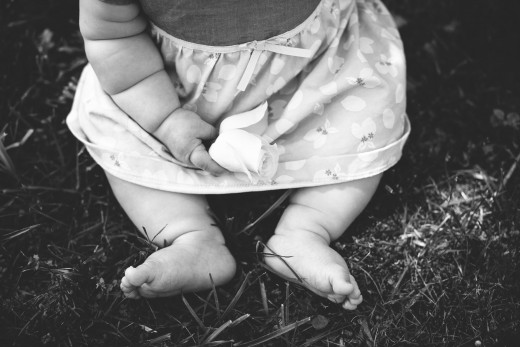
What is your experience with feeding your child(ren)?
The light.
When our daughter was six months old, we began to try re-introducing breastmilk, little by little. And to our surprise and relief, she did well. We learned quickly that mixing breastmilk and formula created a foul taste, so we had to use double the amount of bottles. It took longer to heat, clean and prepare this many bottles, but that was a small price to pay to lessen my feelings of guilt and shame. We could see the light at the end of the tunnel. I felt good, really, really good.
We quickly used up all of the breast milk I'd frozen, and by the time our daughter reached eight months of age, I had quit pumping. While I would have loved to have said I continued until she turned one (the recommended age at which breastfeeding can be stopped), my body had had enough. I felt proud of myself for providing for her, despite mine and her struggles. I tried my best to convince myself that I had done all I could.
Fast forward a year, and we have a happy, healthy nearly 21 months-old daughter with the most amazing personality. She still sleeps with her portable vibrating soother, and while her stubbornness and headstrong nature persist, she is a funny, outgoing, caring and all-around active young girl. Given all of her struggles initially - and the fact that she is enrolled in a daycare program on a daily basis - she has only been sick once, with an ear infection. Her immune system rocks.
We feel good. Really, REALLY good.
© 2016 laarensbak

